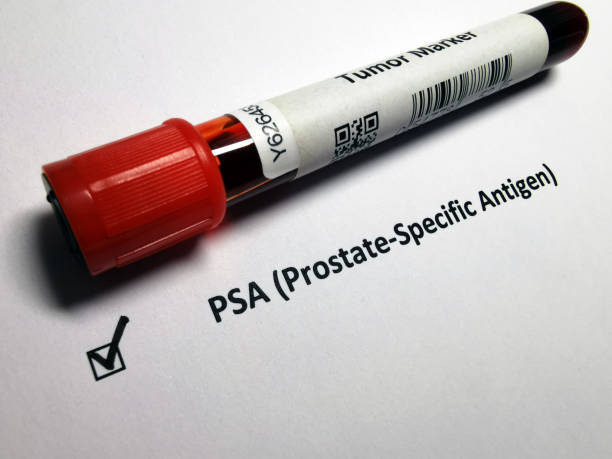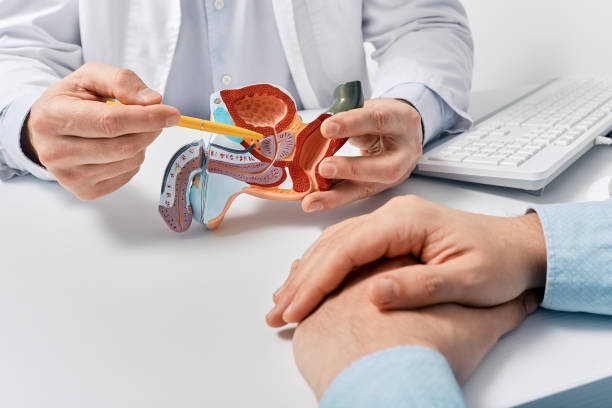Table of Contents
Introduction
Maintaining good prostate health is a priority for many men, especially as they age. The prostate, a small gland located below the bladder, plays a crucial role in reproductive health. A healthy prostate ensures proper urinary function, as well as the production of seminal fluid. However, prostate health issues, such as benign prostatic hyperplasia (BPH), prostatitis, and prostate cancer, can significantly impact a man’s quality of life.
Understanding Prostate Health
Before diving into the strategies to improve prostate health, it’s important to understand how the prostate functions. The prostate produces a fluid that forms part of the semen, which nourishes and transports sperm. As men age, the prostate may undergo changes that can lead to health problems, particularly with the bladder and urinary function. Prostate health is closely tied to hormonal changes, lifestyle choices, and genetics. A healthy lifestyle that includes regular exercise, a balanced diet, and stress management can make a significant difference in keeping the prostate in optimal condition. So, how can you take control of your prostate health?
Simple Steps to Improve Prostate Health
1. Adopt a Prostate-Friendly Diet
What you eat plays a vital role in maintaining prostate health. A diet rich in antioxidants, healthy fats, and essential nutrients can provide the body with the necessary tools to keep the prostate functioning well. Here are a few dietary changes to consider:
- Increase vegetable intake: Vegetables like tomatoes, broccoli, and leafy greens are high in antioxidants, which can reduce inflammation and protect prostate cells.
- Eat more fish: Omega-3 fatty acids found in fish such as salmon, sardines, and mackerel are beneficial for reducing inflammation and promoting overall prostate health.
- Limit red meat and processed foods: High intake of red meat and processed foods has been associated with an increased risk of prostate issues, so it’s wise to limit these foods in your diet.
- Consume whole grains and fiber: Whole grains like oats, brown rice, and quinoa are rich in fiber, which helps in regulating hormonal levels and preventing issues like BPH.
A well-balanced diet that prioritizes fruits, vegetables, whole grains, and healthy fats can significantly enhance prostate health.
2. Exercise Regularly
Regular physical activity is essential for overall health, including prostate health. Exercise helps to regulate hormone levels, improve blood circulation, and maintain a healthy weight, all of which are crucial for prostate function. Here’s how exercise can benefit your prostate:
- Weight management: Maintaining a healthy weight reduces the risk of developing prostate problems, particularly prostate cancer.
- Hormonal balance: Exercise helps to balance testosterone levels, which can directly affect prostate health.
- Increased circulation: Physical activity enhances blood flow, delivering oxygen and nutrients to the prostate, supporting its health and function.
Aim for at least 30 minutes of moderate exercise, such as walking, swimming, or cycling, at least five times a week. Strength training and pelvic exercises, such as Kegels, can also be beneficial for prostate health.
3. Stay Hydrated
Proper hydration is essential for overall health and prostate function. Drinking enough water throughout the day helps the urinary system function efficiently and supports detoxification processes. Dehydration can lead to urinary retention, which may strain the prostate and bladder.
To maintain prostate health, aim to drink at least eight glasses of water per day. If you have an active lifestyle or are in a hot climate, you may need to increase your fluid intake.
4. Manage Stress Levels
Chronic stress can negatively affect your overall health, including your prostate. Stress triggers the release of hormones like cortisol, which can lead to inflammation and may increase the risk of prostate issues. Managing stress is crucial for maintaining prostate health. Consider these techniques to reduce stress:
- Meditation and mindfulness: These practices can help calm the mind and lower stress levels.
- Breathing exercises: Deep breathing can activate the body’s relaxation response, reducing the effects of stress.
- Regular physical activity: As mentioned earlier, exercise not only benefits physical health but also helps to relieve stress and improve mental well-being.
By managing stress effectively, you can prevent the long-term negative effects it has on prostate health.
5. Get Regular Check-ups
Routine check-ups with your healthcare provider are essential for early detection of any prostate issues. Regular screenings, such as the prostate-specific antigen (PSA) test or digital rectal exam (DRE), can help identify early signs of prostate problems, including prostate cancer.
Getting screened allows for early intervention and increases the chances of successful treatment. It’s recommended that men over 50 (or earlier for those with a family history of prostate issues) schedule annual exams with their doctor.

6. Limit Alcohol and Caffeine Consumption
Excessive alcohol and caffeine consumption can irritate the bladder and prostate. Both substances can cause frequent urination, dehydration, and bladder issues, which can indirectly affect prostate health. Limiting or moderating the intake of these substances can help maintain a healthy prostate.
Opt for herbal teas, water, or fruit juices instead of caffeinated or alcoholic beverages. If you do choose to consume alcohol, do so in moderation.
7. Maintain a Healthy Weight
Carrying excess weight increases the risk of developing prostate issues, including BPH and prostate cancer. Being overweight can lead to hormonal imbalances, which can affect the prostate’s function. Maintaining a healthy weight through a balanced diet and regular exercise is one of the most important steps you can take to improve prostate health.
Even a modest weight loss can reduce the risk of prostate problems, so focus on adopting a sustainable, healthy lifestyle that includes proper nutrition and physical activity.

Prostate Supplements: Are They Beneficial?
There are many supplements on the market claiming to promote prostate health. Some ingredients commonly found in these supplements include saw palmetto, beta-sitosterol, and zinc. While these supplements may offer some benefits, it’s important to consult your healthcare provider before using them. A balanced diet and lifestyle changes should always be the first approach to improving prostate health.

Conclusion
Improving prostate health doesn’t have to be complicated. By making simple lifestyle changes like eating a balanced diet, exercising regularly, staying hydrated, and managing stress, you can support your prostate and improve your overall well-being. Regular check-ups and screenings are essential for early detection of any potential issues, so don’t overlook the importance of proactive health management.
Remember, maintaining a healthy prostate is a lifelong commitment. By following these easy steps and being mindful of your health, you can enjoy a better quality of life and reduce the risk of prostate problems as you age.
Frequently Asked Questions
How can I improve my prostate health naturally?
Improving your prostate health naturally can be achieved by adopting a healthy diet, staying active, reducing stress, staying hydrated, and getting regular check-ups. These lifestyle changes have a direct impact on prostate function and overall well-being.
What foods are good for prostate health?
Foods rich in antioxidants, omega-3 fatty acids, fiber, and essential vitamins are beneficial for prostate health. Include vegetables like tomatoes and broccoli, fish like salmon, and whole grains like oats to improve prostate health naturally.
Can exercise improve prostate health?
Yes, regular exercise helps to improve circulation, balance hormones, and maintain a healthy weight, all of which contribute to better prostate health. A combination of aerobic exercise and strength training can be especially beneficial.
Is stress bad for prostate health?
Chronic stress can negatively affect prostate health by increasing inflammation and hormone imbalances. Managing stress through relaxation techniques like meditation and deep breathing can help protect the prostate.
What lifestyle changes can I make to prevent prostate problems?
To prevent prostate problems, focus on a balanced diet, regular exercise, stress management, proper hydration, and routine medical check-ups. These proactive steps can significantly reduce the risk of prostate issues as you age.



